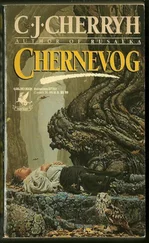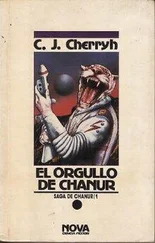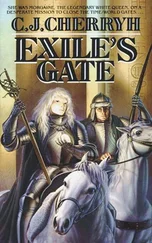C. Cherryh - Kesrith
Здесь есть возможность читать онлайн «C. Cherryh - Kesrith» весь текст электронной книги совершенно бесплатно (целиком полную версию без сокращений). В некоторых случаях можно слушать аудио, скачать через торрент в формате fb2 и присутствует краткое содержание. Жанр: romance_sf, на английском языке. Описание произведения, (предисловие) а так же отзывы посетителей доступны на портале библиотеки ЛибКат.
- Название:Kesrith
- Автор:
- Жанр:
- Год:неизвестен
- ISBN:нет данных
- Рейтинг книги:3 / 5. Голосов: 1
-
Избранное:Добавить в избранное
- Отзывы:
-
Ваша оценка:
- 60
- 1
- 2
- 3
- 4
- 5
Kesrith: краткое содержание, описание и аннотация
Предлагаем к чтению аннотацию, описание, краткое содержание или предисловие (зависит от того, что написал сам автор книги «Kesrith»). Если вы не нашли необходимую информацию о книге — напишите в комментариях, мы постараемся отыскать её.
All Rights Reserved
Cover art by Gino D'Achille
Frontispiece sketch by the Author
For DON WOLLHEIM with most especial appreciation
FIRST DAW PRINTING, AUGUST 1978 123456789
PRINTED IN U. S. A.
Kesrith — читать онлайн бесплатно полную книгу (весь текст) целиком
Ниже представлен текст книги, разбитый по страницам. Система сохранения места последней прочитанной страницы, позволяет с удобством читать онлайн бесплатно книгу «Kesrith», без необходимости каждый раз заново искать на чём Вы остановились. Поставьте закладку, и сможете в любой момент перейти на страницу, на которой закончили чтение.
Интервал:
Закладка:
Niun held his breath while the rogue lifted his rheum-blinded eyes toward that sound, mobile lips working nervously. It rocked. It gave another explosive snort and shifted its weight, easing aside. The shoulder hit the screen. It toppled with a brazen crash, and the beast whirled, bathed in the glow from the inner shrine. Niun flung his arm over his eyes in horror lest he see the Forbidden, and then, surety in his heart, he reached for his gun, futile against a dus.
He must attack whatever threatened the Forbidden, to prevent, if he could, the invasion of the Sen-shrine. He sighted for the brain, the first of the two brains, knowing full well the following convulsions would destroy him with the dus.
But the dus did not take that step beyond. It lowered its weeping head and nosed at the corpse, disarranging the veil; and when it had done so, it moaned and slowly, almost distractedly, swung its head about, putting its shoulder between its head and the gun, and began to withdraw from the Shrine.
And when it had done so, when it walked the hall outside, still giving that lost-infant sound, for the first time Niun clearly knew it.
Medai's dus.
There was no mri who could claim, other clues removed, to know any dus but his own, and not even that one, given much passage of time. Dusei were too similar and too mutable, and one could only say that this one was like the dus he knew.
But that this particular one had not killed him, that it had been primarily interested in the body, and departed unsatisfied—that action he understood. Dusei were troubled at death. Other animals ignored the dead, but dusei did not understand, did not accept it. They grieved and searched and fretted, and eventually died themselves, more often than not. They rarely outlived their masters, pining away in their search.
And this one was hunting something it had not found.
Medai's dus, come looking for him.
A dus that was sickly and covered with sores and deep in the throes of a madness that did not come on swiftly, although regul said that Medai had died but a night ago.
A dus that was thin and starved as its dead master.
A chill feeling grew in Niun, until he was physically shivering, not alone from dread of the dus. He bolstered his gun and glanced fearfully at the nakedness of the inner shrine, on which he ought never to have looked.
It should not have happened. He washed his hands with the water of the offerings, and without setting foot across the forbidden line, he set the screen in place again, his fingers reverent on the inanimate metal. He had lived. The gods, like men, could forgive the irreverence of dusei; and he had looked within the Sen shrine, and felt shaken, but not to the death. He had seen brightness, but nothing of the Objects, or nothing that he could identify as the Holy. He tried to put this from his mind. It was not for a kel'en to have seen. He did not want to remember it.
And Medai?
He set up the lamp again, and refilled it, and lighted it, restoring its comforting glow. Then on his knees he mopped up the spilled oil that by the mercy of the gods had not kept burning; and all the while he worked, exhausted and trembling from his vigil, he thought, and nursed that cold feeling that lodged under his heart.
At last he washed his hands for respect and laid hands on Medai for the irreverence he had to commit: the thought borning in his mind gave him no peace otherwise. He did it quickly, once he had gathered his courage, carefully unfastened the clothing and examined the wound, and found it– shaming his suspicion and his act—as the regul had said.
Ika'al.
"Forgive me," he said to the spirit of Medai; and reverently reclosed the robes and washed the face and replaced the veils. Then he cast himself on his face before the shrine and made the proper prayers to the several ancestor-gods of his caste for rest for the soul of Medai, with more sincerity than he had ever used on his cousin when he was living.
This should have absolved him and given him peace, having surrendered to that which was proper and honest, but it did not.
He had in him a gathering certainty that, whatever the evidence of his eyes and the testimony of the regul, Medai had not laid down his life willingly.
The dus, so close to a kel'en's mind, was miuk'ko and grown so thin that it could pass shrine doors; and the body of Medai, once solid with muscle, was thin as the mummified dead.
Kel-quarters were independent units within the regul ship plan, because of the dusei, which the regul feared beyond all logic; and because of the stringent caste laws that a kel'en must observe with respect to contact with outsiders.
But essentially that kel'en was always at the mercy of the regul, who supplied that unit with food, water, even the air he breathed. All that a kel'en could do to assert his independence was lock the door.
Had they wanted him dead, they could have stopped the air and cast him into cold space afterward. But these were tsi'mri, and more than that, they were strangers to the People, a strange new branch of regul; and they might not have known enough to deal with a kel'en. Regul were not fighters.
Not directly.
Consumed by the thought that took shape in him, he rose up and left the Shrine, took an offering vessel of water and a pannikin, and went out to the outer hall, to the door, where the mad dus still crouched before the edun.
He had known it must be there, waiting. It was near what it desired, but could not find it He had been as sure of its lingering there as he was sure how it had been driven mad. It was no less dangerous for its once having been tame; it could still rise up and kill on impulse. But when he set the water before it, it sniffed at the offering curiously and at last bestirred itself, nosing down into the water. The contents of the pannikin disappeared. Niun filled it a second and a third and a fourth time, and only at the fourth did the beast suddenly avert its head in refusal.
He sank down on his heels and studied the creature, thin as it was and its fur gone in patches. A great open wound was fresh on its side.
Medai's dus, come from regul care, from violence, from starvation. It would not have left Medai of choice even after he was dead.
Regul would not act as mri would act They were capable of collusion, of bribery, of deceit, of slaughter of their own young, but never of murder of an adult, never of that. They could neither kill nor lie in cold blood; they hired mri to attend to their enemies.
So he had always been taught, by those who knew the regul better than he, by those who had dealt with regul lifelong.
So he had implicitly believed.
As had Medai.
He rose and walked inside, back to the Shrine, and sat down beside the body of his cousin, arms locked about him, staring without comprehension at the serpentine writings that recorded and concealed the history of the People.
Murder had been done, in one manner or another, whatever name the regul gave it. A kel'en had been killed by his own employers, and his dus weakened to the point that they could drive it out to die naturally—one body to return to the Kel, the act of ignorant regul; another disposed of by predators and scavengers, or at best those incapable of betraying what had happened. Regul hands and regul conscience were doubtless clean. Medai had finally done as they had wished.
He wished desperately to go upstairs and tell someone. He wished to run to Eddan for counsel, to alert the she'pan. But he had nothing for proof but a beast that lay outside the door. He had nothing on which to hang such an accusation, no shape to his suspicion, no motive he could reckon which would have driven the regul to compel a kel'en to such an action.
It was irony of a kind, he thought, that of all whom Medai might have trusted to see to his avenging, he had come to the hands of his oldest rival; and the only likely witness of the truth was a miuk'ko.
Читать дальшеИнтервал:
Закладка:
Похожие книги на «Kesrith»
Представляем Вашему вниманию похожие книги на «Kesrith» списком для выбора. Мы отобрали схожую по названию и смыслу литературу в надежде предоставить читателям больше вариантов отыскать новые, интересные, ещё непрочитанные произведения.
Обсуждение, отзывы о книге «Kesrith» и просто собственные мнения читателей. Оставьте ваши комментарии, напишите, что Вы думаете о произведении, его смысле или главных героях. Укажите что конкретно понравилось, а что нет, и почему Вы так считаете.







